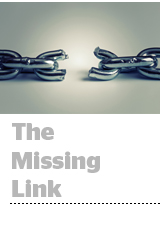 When GDPR took effect in May, Google told publishers and ad tech vendors it expected to implement the IAB Europe Transparency and Consent Framework (TCF) by August.
When GDPR took effect in May, Google told publishers and ad tech vendors it expected to implement the IAB Europe Transparency and Consent Framework (TCF) by August.
But Google’s consent management solution, Funding Choices, is still not an IAB-registered consent management platform (CMP) and isn’t interoperable with many IAB members. And no new timeline has been set for Google to launch an official CMP.
“We have been working closely with IAB Europe over the last several months to ensure our ad products are interoperable with the Transparency and Consent Framework,” a Google spokesperson told AdExchanger. “We are in the process of formalizing our participation in the framework and hope to integrate as quickly as we can.”
Google joined the TCF as a vendor in June, so publishers with an IAB CMP can still pass consent to Google for targeted ad buys. And the company has worked out deals with some of the largest programmatic players, including AppNexus, Rubicon Project and Criteo, to pass consent.
Despite the partial integrations, however, Google’s delay in fully joining the TCF is a blow for many programmatic publishers and tech vendors.
Aside from the loss of demand and lower CPMs for non-targeted inventory, Google’s delay in joining the framework has checked adoption of CMPs, since most publishers in Europe use Google Ad Manager (formerly DoubleClick for Publishers) and many plan to stay squarely in Google’s wake when it comes to GDPR policy.
“It’s hard to explain to pubs why you support a global framework but the elephant in the room isn’t on the list,” said Niels Baarsma, co-founder and chief product officer for the privacy management company and CMP Faktor.
Many Google publishing customers who use its default consent solution are unaware that the IAB framework and CMPs exist, said Adrien Thil, Smart’s head of corporate development who oversees its IAB Europe working group involvement and consent policies.
“(CMP adoption) is still an open topic because there’s a lack of clarity around Google’s position and that’s given publishers a lot of hesitation,” Thil said. “We expect searches and adoption for CMP tech to shoot up once Google enters the market.”
The reasons for the delay in Google joining the framework are unclear, but there are several possibilities.
The IAB and ad tech ecosystem have different interpretations of legitimate interest, said Joshua Koran, Sizmek’s managing director of DMP product. Once legitimate interest is obtained, vendors can process data without being given explicit user consent because their function is necessary for the publisher’s business.
IAB Europe executives could not be reached for comment and the IAB Tech Lab, which houses the CMP product and policy working group, declined to comment.
Google may also have trouble accepting vulnerabilities in the TCF.
Some publishers use an open-source CMP that passes consent to the supply chain but isn’t actually adhering to IAB standards, Baarsma said. Publishers and vendors could also pass mistaken or faked consent strings, potentially implicating a whole supply chain without the ability to verify consent in real time.
Exchanges like AppNexus and Rubicon that are integrated with Google’s consent system have had to sign contracts making them responsible for instances of forged or misused consent.
“I wish I knew the reasons for the delay,” said Jessica Berman, SpotX’s senior advertising product manager. “Then we’d be able to convey that to our customers who expect us to know.”
This post was syndicated from Ad Exchanger.


More Stories
Brother: NZ Marketing Awards celebrate industry success
AI Search Startup Perplexity’s Series B Funding Raises Nearly $63M, Launches Enterprise Pro
MFA Sites Aren’t Going Anywhere Until There Are Incentives To End Them